Tofacitinib
Showing all 7 results
-
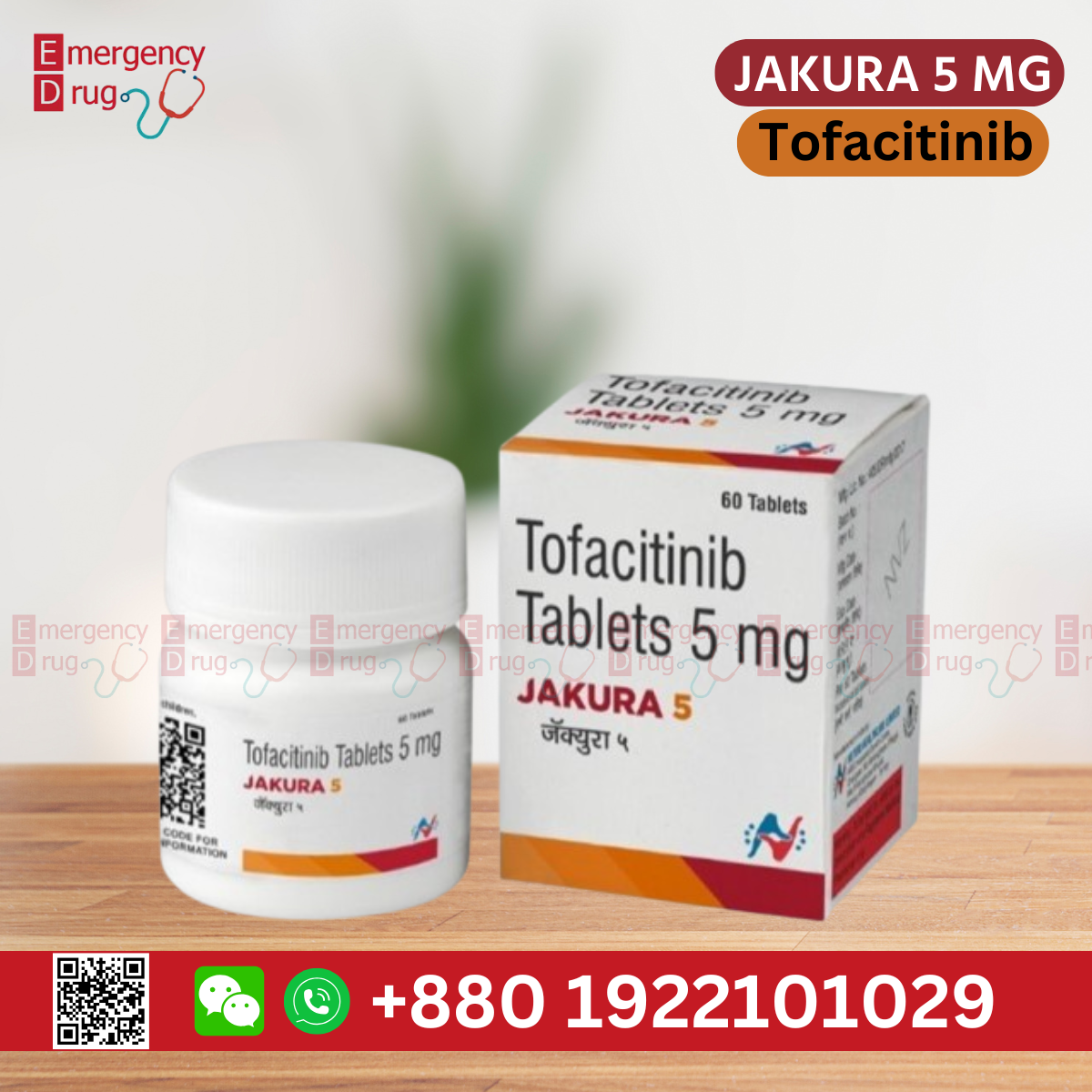
Jakura 5 mg (Tofacitinib) – 60 Tablets
$200.00 Add to cart -
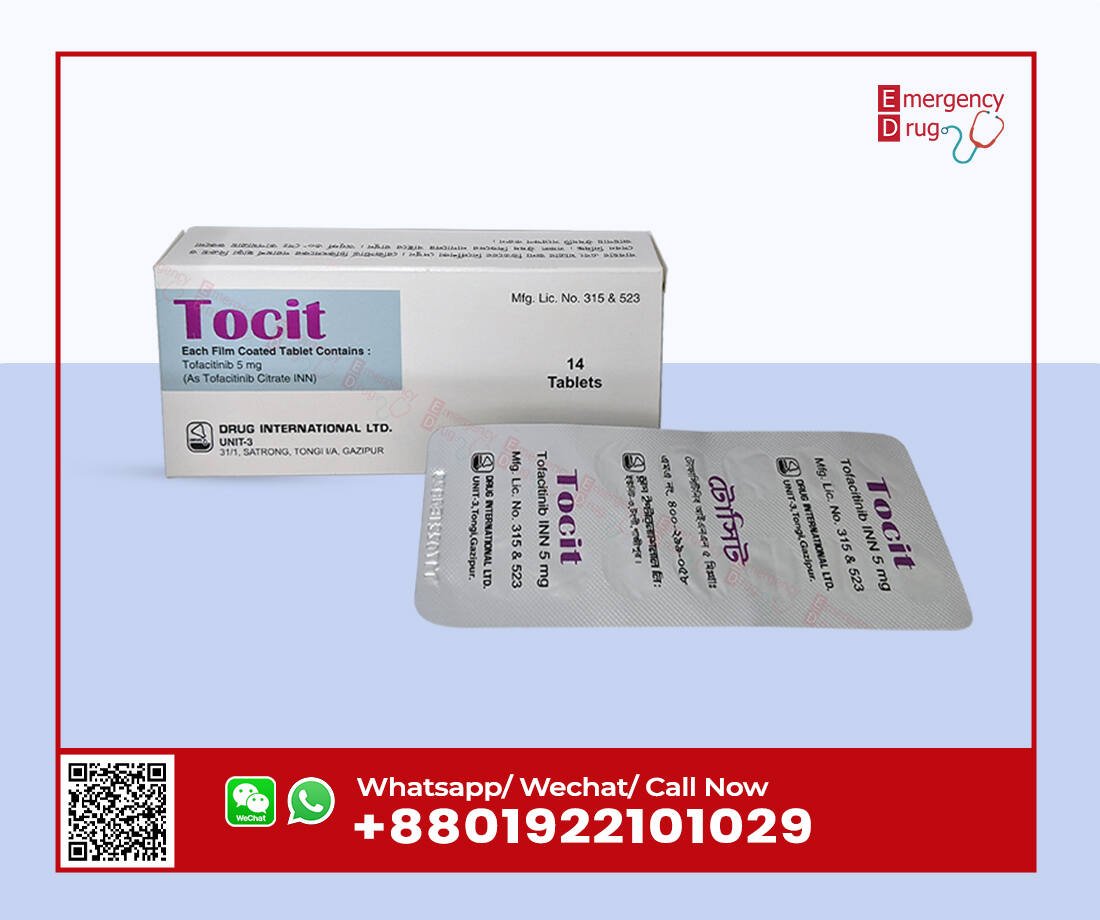
Tocit 5 mg (Tofacitinib) – 60 Tablets
$50.00 Add to cart -
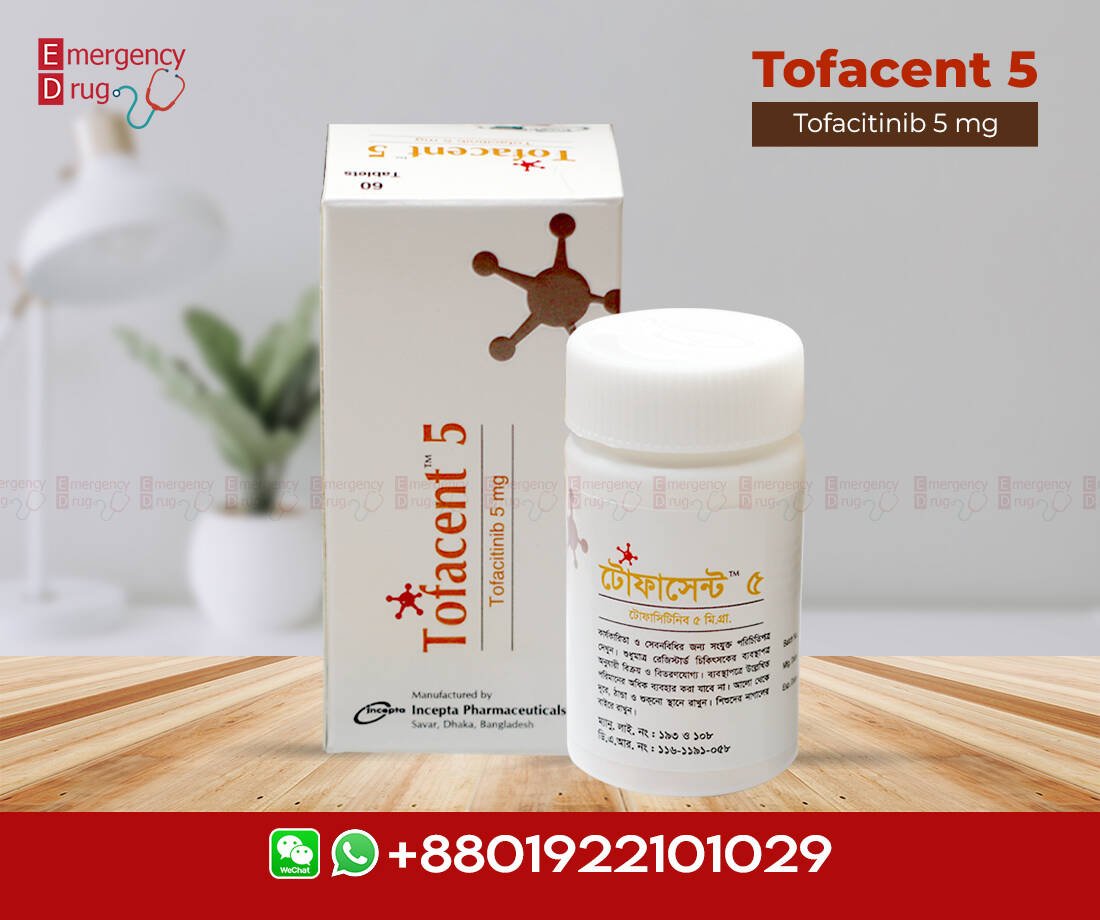
Tofacent 5 MG (Tofacitinib) – 60 Tablets
$30.00 Add to cart -
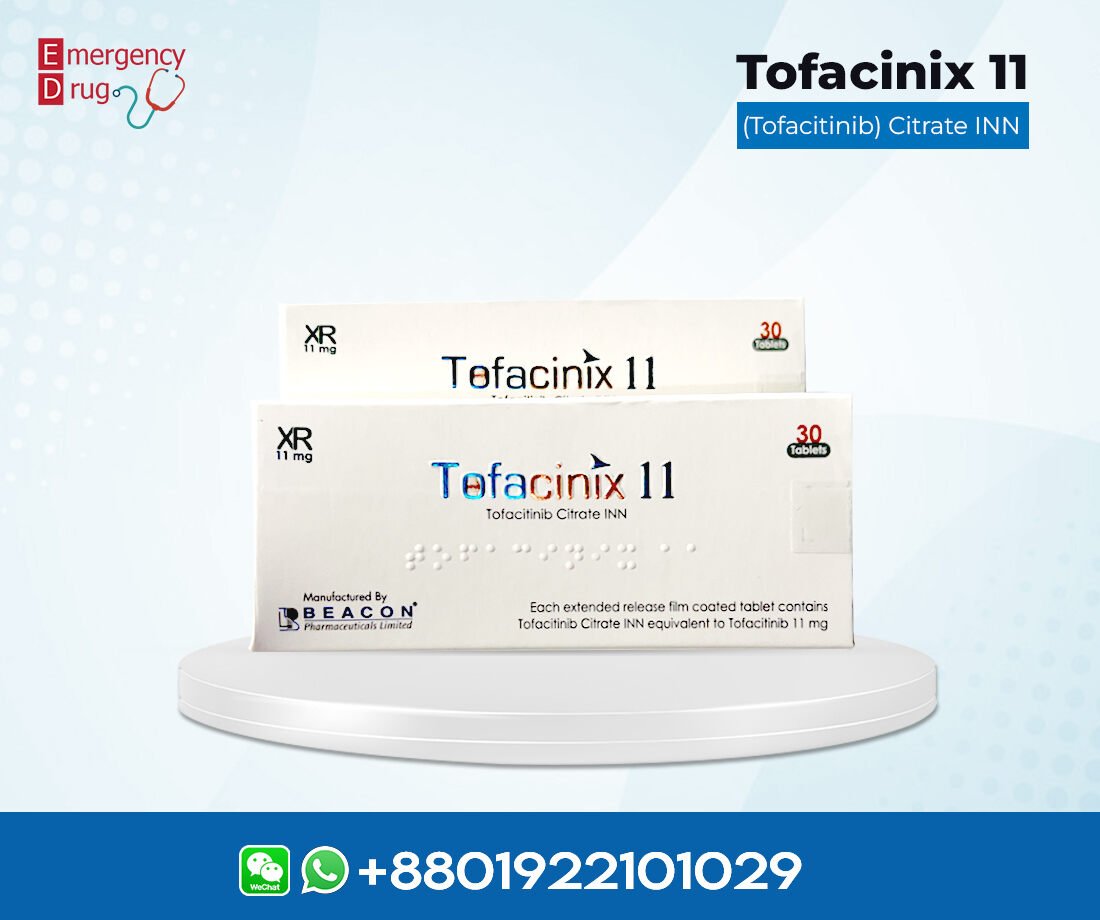
Tofacinix 11 MG (Tofacitinib) – 30 Tablets
$90.00 Add to cart -
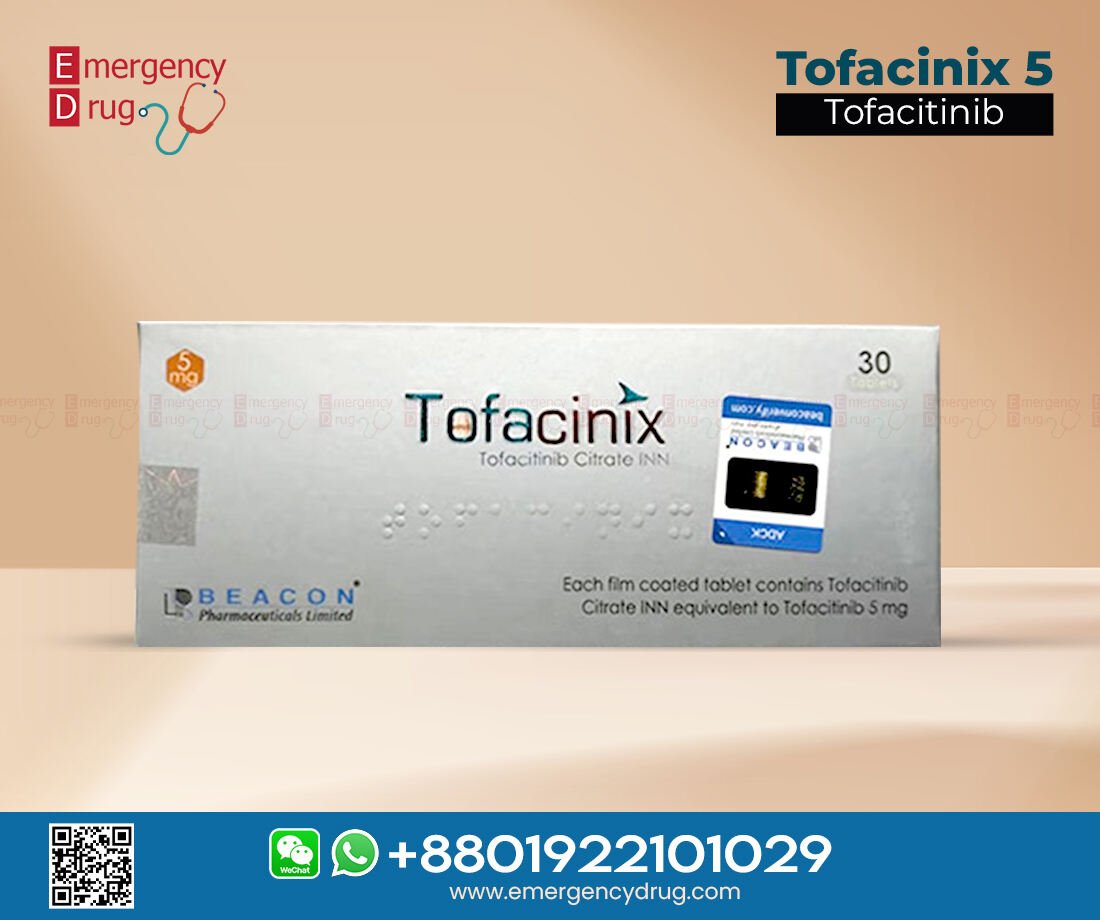
Tofacinix 5 MG (Tofacitinib) – 30 Tablets
$65.00 Add to cart -
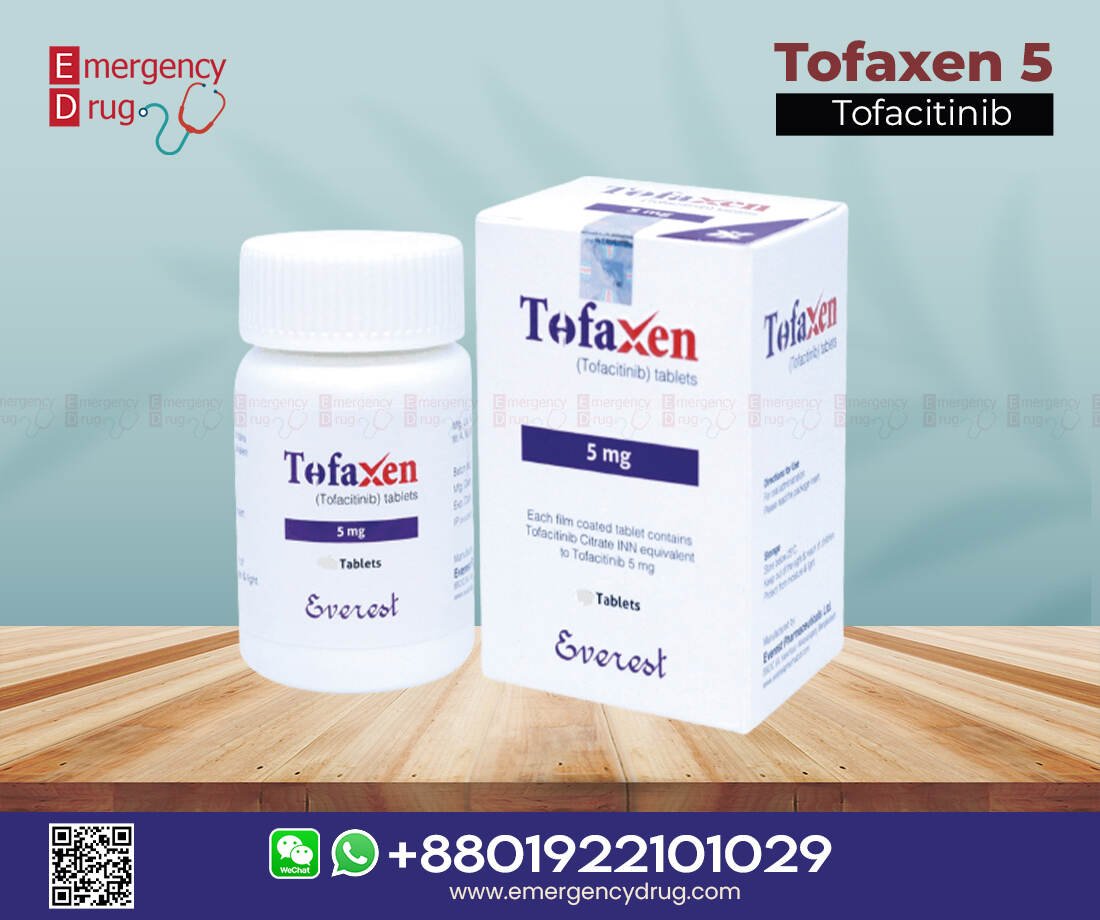
Tofaxen 5 mg (Tofacitinib) – 60 Tablets
$45.00 Add to cart -
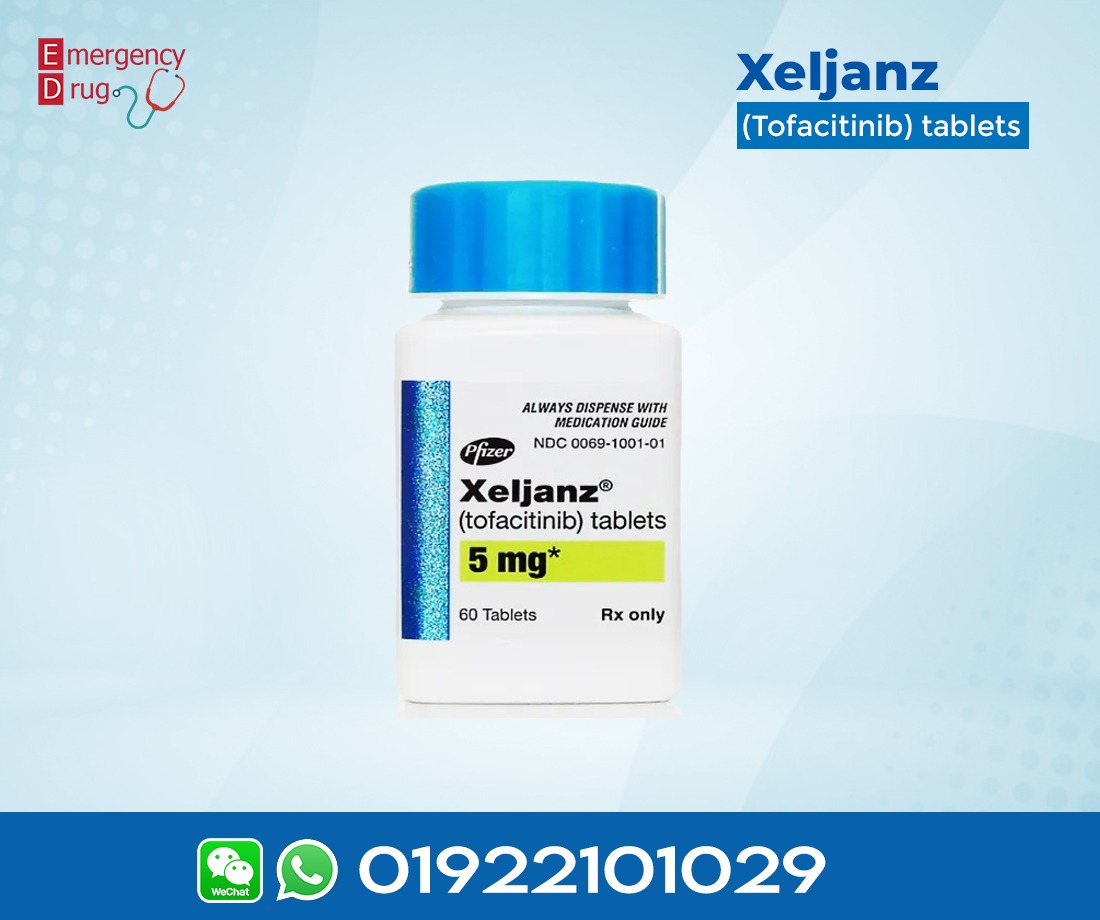
Xeljanz 5 MG – 60 Tablets
$4,500.00 Add to cart
Tofacitinib Price & Cost and Brands
Summary:
This article provides a thorough exploration of generic tofacitinib, a medication used to treat various autoimmune conditions. We delve into its mechanisms, benefits, potential side effects, and practical usage, price, considerations. This guide aims to empower readers with accurate, accessible information, addressing common questions and providing clarity on this important medication.
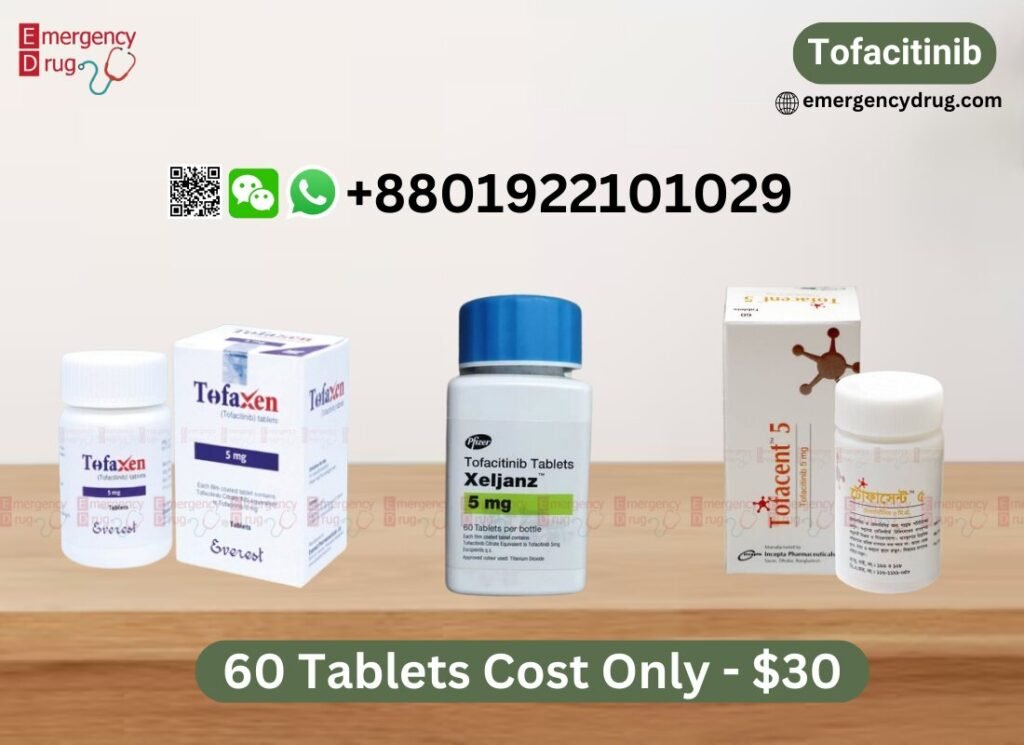
Medicine Overview: What is Tofacitinib?
Tofacitinib is a Janus kinase (JAK) inhibitor. Simply put, it works by blocking specific enzymes involved in inflammation. This action helps to reduce the symptoms of autoimmune diseases, such as rheumatoid arthritis, psoriatic arthritis, ulcerative colitis, and ankylosing spondylitis. It’s often prescribed when other treatments haven’t been effective or aren’t tolerated.
Doctors use the medicine to treat rheumatoid arthritis, psoriatic arthritis, and ulcerative colitis. It blocks certain enzymes that cause inflammation, which helps reduce symptoms like pain, swelling, and stiffness. Patients usually take it as a tablet, especially when other treatments aren’t working well enough. Like all medications, it’s important to discuss possible side effects and benefits with a healthcare provider.
Indications: When is Tofacitinib Prescribed?
- Rheumatoid Arthritis (RA): For adults with moderate to severe RA who haven’t responded well to methotrexate.
- Psoriatic Arthritis (PsA): For adults with active PsA who haven’t responded well to other disease-modifying antirheumatic drugs (DMARDs).
- Ulcerative Colitis (UC): For adults with moderately to severely active UC who haven’t responded well to or can’t tolerate tumor necrosis factor (TNF) blockers.
- Ankylosing Spondylitis (AS): For adults with active AS who have had an inadequate response or intolerance to TNF blockers.
Therapeutic Class: How Tofacitinib Fits In
Tofacitinib belongs to the class of medications known as JAK inhibitors. These drugs target specific pathways within the immune system to reduce inflammation. This targeted approach is a key reason for its effectiveness in managing autoimmune conditions.
Pharmacology: How Does Tofacitinib Work?
The core of tofacitinib’s effectiveness lies in its ability to inhibit JAK enzymes. These enzymes play a crucial role in the signaling pathways that lead to inflammation. By blocking these pathways, tofacitinib reduces the inflammatory response, alleviating symptoms like joint pain, swelling, and bowel inflammation.
Available Brands and Tofacitinib Price List
Brand Name |
Manufacture |
Quantity |
Tofacitinib Price in USD |
| Tofacent 5 MG | Incepta Pharma | 60 Tablets | $30 |
| Tofaxen 5 MG | Everest Pharma | 60 Tablets | $45 |
| Tocit 5 MG | Drug International | 60 Tablets | $50 |
| Tofacinix 5 MG | Beacon Pharma | 30 Tablets | $65 |
| Tofacinix 11 MG | Beacon Pharma | 30 Tablets | $90 |
| Xeljanz 5 MG | Pfizer Pharma | 60 Tablets | $4500 |
| Jakura 5MG | Abyss Pharma | 60 Tablets | $200.00 |
The Brand name of the Tofacitinib Generic
Tofacitinib has various brand names, and Xeljanz is the most recognized one. This medicine mainly treats autoimmune diseases like rheumatoid arthritis, psoriatic arthritis, and ulcerative colitis. It works by blocking specific pathways in the immune system that cause inflammation and disease symptoms. It is available as both a tablet and an oral solution, making it easier for patients to take.
Now most companies have been producing this generic with different brands’ names. Like, Beacon Pharmaceuticals Limited manufactures Tofacinix, Incepta Pharmaceuticals Ltd manufactures Tofacent, Everest Pharmaceuticals Ltd manufactures Tofaxen and Drug International Ltd manufactures Tocit.
Tofacitinib 5 mg Price
Tofacitinib 5 mg price starts from $30. The price basically depends on various brands or manufacturers companies.
Specifications:
Dosage Form : Tablet
Strength : 5 mg
Administration : Oral
Manufacturer : Various pharmaceutical companies
Tofacitinib 11 mg Price
Tofacitinib 11 mg price starts from $90. The price depends on various brands or manufacturers companies.
Specifications:
Dosage Form : Tablet
Strength : 11 mg
Administration : Oral
Manufacturer : Various pharmaceutical companies
Tofacitinib cost
The cost of Tofacitinib can vary widely based on several factors, including country of purchase, insurance coverage, dosage, and pharmacy. In the United States, a 30-day supply of 5 mg tablets can cost about $30 to $4,500 without insurance. A 30-day supply of 11 mg tablets costs about $90 to $6,000 if you pay out-of-pocket without insurance.
Dosages And Administration
Tofacitinib dose for Rheumatoid Arthritis & Psoriatic Arthritis Treatment:
- Recommended dose: 5 mg twice daily or extended-release (XR) 11 mg once daily
- Subjects with moderate to severe renal impairment or moderate hepatic impairment: Recommended 5 mg once daily
Ulcerative Colitis Treatment:
- Recommended dose: 10 mg twice daily for eight weeks initially, then decreased to 5 mg twice daily (Note: 10 mg twice daily is only FDA-approved for ulcerative colitis treatment)
- Discontinue if adequate therapeutic response is not achieved by 16 weeks at 10 mg twice-a-day dosage
- Subjects with moderate to severe renal impairment or moderate hepatic impairment: Recommended half of the daily dosage compared to those with normal renal and hepatic function
Polyarticular Course Juvenile Idiopathic Arthritis Treatment:
- Recommended dose: 5 mg twice daily (oral solution) or weight-based equivalent twice daily
- Bodyweight 10 kg to less than 20 kg: 3.2 mg (3.2 mL oral solution) twice daily
- Bodyweight 20 kg to less than 40 kg: 4 mg (4 mL oral solution) twice daily
- Bodyweight greater than 40 kg: 5 mg (one 5 mg tablet or 5 mL oral solution) twice daily
Mechanism of Action
Tofacitinib works by targeting Janus kinase (JAK) enzymes, which play a crucial role in transmitting signals within cells, especially those related to immune cell function. These enzymes are involved in activating Signal Transducers and Activators of Transcription (STATs), which in turn regulate gene expression and other intracellular activities.
Tofacitinib intervenes in this process by inhibiting JAKs, specifically blocking their ability to phosphorylate and activate STATs. This action helps to modulate immune responses and reduce inflammation.
It’s worth noting that JAK enzymes work in pairs, such as JAK1/JAK2, JAK1/JAK3, JAK1/TyK2, and JAK2/JAK2. It has been shown to inhibit these combinations in laboratory studies, with varying degrees of effectiveness. However, the exact significance of targeting specific JAK combinations for therapeutic benefit is still being investigated.
Tofacitinib Chemical Structure:
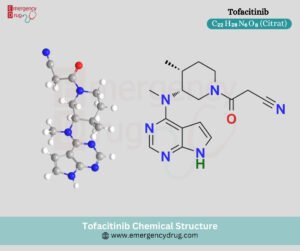
Chemical Formula: C22 H28 N6 O8 (Citrate). This structure features the key components of Tofacitinib, illustrating its complex arrangement of carbon (C), hydrogen (H), nitrogen (N), and oxygen (O) atoms.
Mode of Action: The Detailed Mechanism
Tofacitinib specifically inhibits JAK1 and JAK3, which are involved in cytokine signaling. Cytokines are proteins that play a role in inflammation. By inhibiting JAKs, tofacitinib disrupts this signaling, thereby reducing inflammation.
Dosage and Administration: How to Take Tofacitinib
Dosage varies depending on the condition being treated and the individual’s response. It’s typically taken orally, with or without food. Always follow your doctor’s instructions carefully.
How Long Does Tofacitinib Take to Work?
The time it takes for tofacitinib to work varies. Some people may experience symptom relief within a few weeks, while others may take several months. Consistent use and adherence to the prescribed dosage are crucial.
Uses of Tofacitinib Tablet: Beyond the Basics
Beyond its primary indications, tofacitinib is being studied for other potential uses. Ongoing research is exploring its efficacy in conditions like lupus and other inflammatory diseases.
Benefits of Tofacitinib Tablet: Real-World Impacts
- Reduced joint pain and swelling.
- Improved physical function.
- Decreased bowel inflammation.
- Enhanced quality of life.
Side Effects
Common Side Effects:
- Upper respiratory tract infections
- Headaches
- Diarrhea
- High blood pressure
- Increased cholesterol levels
- Nasopharyngitis (common cold)
Serious Side Effects:
- Serious infections (fever, chills, muscle aches)
- Increased risk of certain cancers (lymphoma, skin cancer)
- Blood clots (deep vein thrombosis, pulmonary embolism)
- Gastrointestinal perforations (severe abdominal pain, fever)
- Elevated liver enzymes
Other Possible Side Effects:
- Anemia (low red blood cell count)
- Neutropenia (low white blood cell count)
- Increased creatine phosphokinase (muscle injury)
- Rash
Tofacitinib Drug Interactions: Medications to Watch
Tofacitinib can interact with other medications, including certain immunosuppressants and antifungal drugs. Always inform your doctor about all medications you are taking.
Tofacitinib Prescribing Information: Key Details
Prescribing information includes details on dosage, administration, safety precautions, and potential side effects. Always refer to the official prescribing information for accurate and up-to-date details.
Tofacitinib FDA Approval: A Milestone
The FDA approval of tofacitinib marked a significant advancement in the treatment of autoimmune diseases. This approval was based on extensive clinical trials demonstrating its safety and efficacy.
Tofacitinib Price: Affordability Considerations
The cost of tofacitinib can vary. Generic versions are often more affordable than brand-name medications. Consider exploring patient assistance programs and insurance options.
Warning During Pregnancy
Tofacitinib may carry potential risks during pregnancy. So, it’s very important for pregnant women or those planning to get pregnant to talk with their doctor. They should discuss the possible risks and benefits of this medication. Use reliable birth control while taking the medicine, and keep using it for some time after you stop. Breastfeeding is not recommended while taking Xeljanz because it’s unknown if the drug passes into breast milk. Patients should always ask their doctor for advice about using Xeljanz during pregnancy and breastfeeding.
FDA Approval
Tofacitinib drug discovered and developed by the National Institutes of Health and Pfizer, It was approved for use in the United States in November 2012. An extended-release version was later approved in February 2016. It’s now available as a generic medication.
- In September 2020, the FDA approved tofacitinib to treat children and adolescents aged two years and older with active polyarticular course juvenile idiopathic arthritis.
- In December 2021, the FDA approved adults with active ankylosing spondylitis.
- The FDA approved tofacitinib in May 2018 for the treatment of ulcerative colitis.
Tofacitinib prescribing information
Medications and Exercises: Complementary Approaches
Combining tofacitinib with appropriate exercises and physical therapy can enhance its benefits. Consult with your healthcare provider for personalized recommendations.
Final Thoughts
In the realm of managing chronic autoimmune diseases, medications like tofacitinib have become pivotal. This is a significant development for many individuals seeking effective treatment without the burden of high medication expenses.
FAQ Section of Tofacitinib Generic
1. How much does Tofacitinib cost?
Ans: The cost of Tofacitinib can vary widely based on location, insurance coverage, and pharmacy. In the United States, the price for a 30-day supply (5 mg or 11 mg tablets) typically ranges from $30 to $6,000. Prices can differ based on the pharmacy and location.
2. How to get tofacitinib?
Ans: You can get Tofacitinib at most major pharmacies, including CVS, Walgreens, Walmart, and Emergency Drug as well as online pharmacies. You will need a prescription from a healthcare provider.
3. What is tofacitinib used for?
Ans: Tofacitinib is used to treat autoimmune and inflammatory conditions such as rheumatoid arthritis, psoriatic arthritis, ulcerative colitis, and atopic dermatitis.
4. What is tofacitinib citrate?
Ans: Tofacitinib citrate is the citrate salt form of tofacitinib, used to treat autoimmune and inflammatory conditions like rheumatoid arthritis and ulcerative colitis.
5. Does tofacitinib cause hair loss?
Ans: Yes, hair loss can be a possible side effect of tofacitinib, although it is not very common and may differ from person to person.
6. What is the name of the Tofacitinib brand?
Ans: The brand name is Xeljanz.
Feel free to contact us on WhatsApp or WeChat
